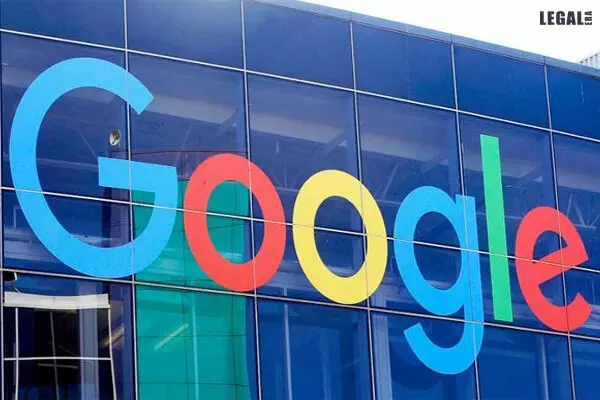- Home
- News
- Articles+
- Aerospace
- AI
- Agriculture
- Alternate Dispute Resolution
- Arbitration & Mediation
- Banking and Finance
- Bankruptcy
- Book Review
- Bribery & Corruption
- Commercial Litigation
- Competition Law
- Conference Reports
- Consumer Products
- Contract
- Corporate Governance
- Corporate Law
- Covid-19
- Cryptocurrency
- Cybersecurity
- Data Protection
- Defence
- Digital Economy
- E-commerce
- Employment Law
- Energy and Natural Resources
- Entertainment and Sports Law
- Environmental Law
- ESG
- FDI
- Food and Beverage
- Gaming
- Health Care
- IBC Diaries
- In Focus
- Inclusion & Diversity
- Insurance Law
- Intellectual Property
- International Law
- IP & Tech Era
- Know the Law
- Labour Laws
- Law & Policy and Regulation
- Litigation
- Litigation Funding
- Manufacturing
- Mergers & Acquisitions
- NFTs
- Privacy
- Private Equity
- Project Finance
- Real Estate
- Risk and Compliance
- Student Corner
- Take On Board
- Tax
- Technology Media and Telecom
- Tributes
- Viewpoint
- Zoom In
- Law Firms
- In-House
- Rankings
- E-Magazine
- Legal Era TV
- Events
- News
- Articles
- Aerospace
- AI
- Agriculture
- Alternate Dispute Resolution
- Arbitration & Mediation
- Banking and Finance
- Bankruptcy
- Book Review
- Bribery & Corruption
- Commercial Litigation
- Competition Law
- Conference Reports
- Consumer Products
- Contract
- Corporate Governance
- Corporate Law
- Covid-19
- Cryptocurrency
- Cybersecurity
- Data Protection
- Defence
- Digital Economy
- E-commerce
- Employment Law
- Energy and Natural Resources
- Entertainment and Sports Law
- Environmental Law
- ESG
- FDI
- Food and Beverage
- Gaming
- Health Care
- IBC Diaries
- In Focus
- Inclusion & Diversity
- Insurance Law
- Intellectual Property
- International Law
- IP & Tech Era
- Know the Law
- Labour Laws
- Law & Policy and Regulation
- Litigation
- Litigation Funding
- Manufacturing
- Mergers & Acquisitions
- NFTs
- Privacy
- Private Equity
- Project Finance
- Real Estate
- Risk and Compliance
- Student Corner
- Take On Board
- Tax
- Technology Media and Telecom
- Tributes
- Viewpoint
- Zoom In
- Law Firms
- In-House
- Rankings
- E-Magazine
- Legal Era TV
- Events
NCLAT to commence hearing on Google's appeal against Rs.936 crore penalty

NCLAT to commence hearing on Google's appeal against Rs.936 crore penalty
The trial on the Play Store policies will start on 28 November
The National Company Law Appellate Tribunal (NCLAT) will start hearing the appeal of Google LLC against the decision of the Competition Commission of India (CCI) imposing a penalty of Rs.936.44 crore.
In the Alphabet Inc & Ors v Competition Commission of India & Ors case, a bench of Justice Ashok Bhushan (chairperson) and Dr Alok Srivastava (technical member) said that if required, hearing may continue on a daily basis related to the alleged abuse of the dominant position of Google Play Store policies.
The tribunal ordered, “Four weeks’ time is allowed to file a reply, if any. Further, two weeks is allowed to file a rejoinder. List this appeal on 28 November 2023 at 02:00 pm. Both parties are permitted to file a common convenience compilation, in the meantime. If it requires, the hearing may continue day-to-day.”
The NCLAT had denied interim relief to Google early this year.
The CCI had found Google to be abusing its dominant position in the relevant markets of licensable operating systems (OS) for smart mobile devices and app stores for Android smart mobile OS in India.
In its 25 October 2022 order, the CCI also directed Google to cease and desist from participating in anti-competitive practices. It was directed to modify its conduct within a defined timeline.
The Commission passed the following directions:
1) Google shall allow, and not restrict app developers from using any third-party billing payment processing services, either for in-app purchases or for purchasing the apps;
2) Google shall not impose any anti-steering provisions on app developers and shall not restrict them from communicating with their users to promote their apps and offerings, in any manner;
3) Google shall not restrict end users, in any manner, to access and use within apps, the features and services offered by app developers;
4) Google shall set out a clear and transparent policy on data that is collected on its platform, the use of such data by the platform, and also the potential and actual sharing of such data with app developers or other entities, including related entities;
5) The competitively relevant transaction/consumer data of apps generated and acquired through GPBS, shall not be leveraged by Google to further its competitive advantage;
6) Google shall not impose any condition (including price-related) on app developers, that is unfair, unreasonable, discriminatory, or disproportionate to the services provided to the app developers;
7) Google shall ensure complete transparency in communicating to app developers, services provided, and the corresponding fees charged and shall also publish in an unambiguous manner the payment policy and criteria for the applicability of the fee(s);
8) Google shall not discriminate against other apps facilitating payment through UPI in India vis-à-vis its own UPI app, in any manner.
Google argued before the NCLAT that the Commission’s directions put in peril its technology, security, and the choice that Play Store provides. It stated that the CCI failed to consider the benefits of Google Play and Android to Indian end-users, including benefits like enabling mobile access and protecting end-users from malware and abusive billing practices.
Google was represented by senior advocate Gopal Jain along with advocates Avaantika Kokkar, Deeksha M, Ruchi Verma, and Tarun D.
CCI was guided by Additional Solicitor General N Venkataraman with advocates Samar Bansal, Manu Chaturvedi, V Chandrasekara Bharathi, Shruti Shiv Kumar, Amritha Chandramali, Rahul Vijay K, Shivshankar G, Abhimita Goswami, and Shama Nargis.


